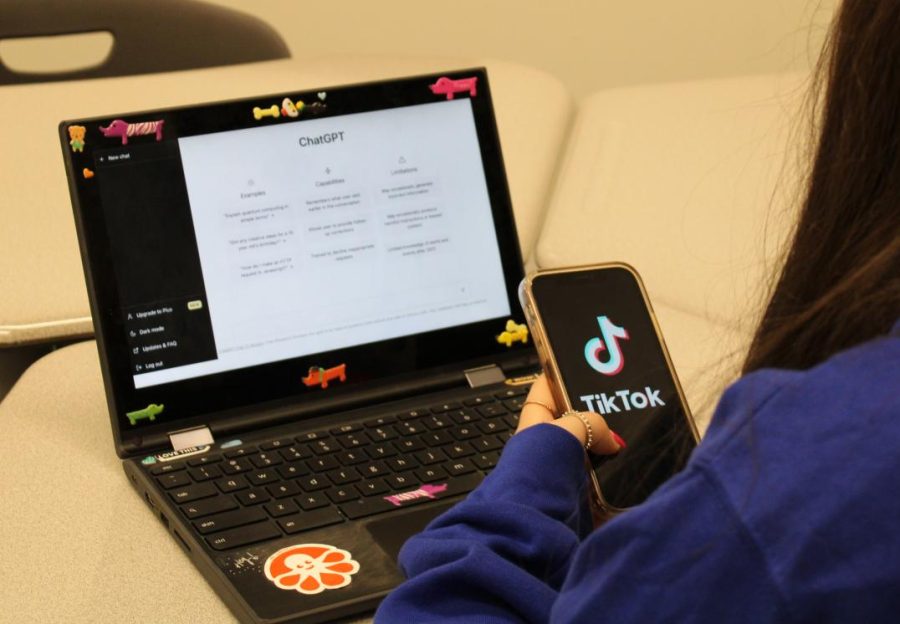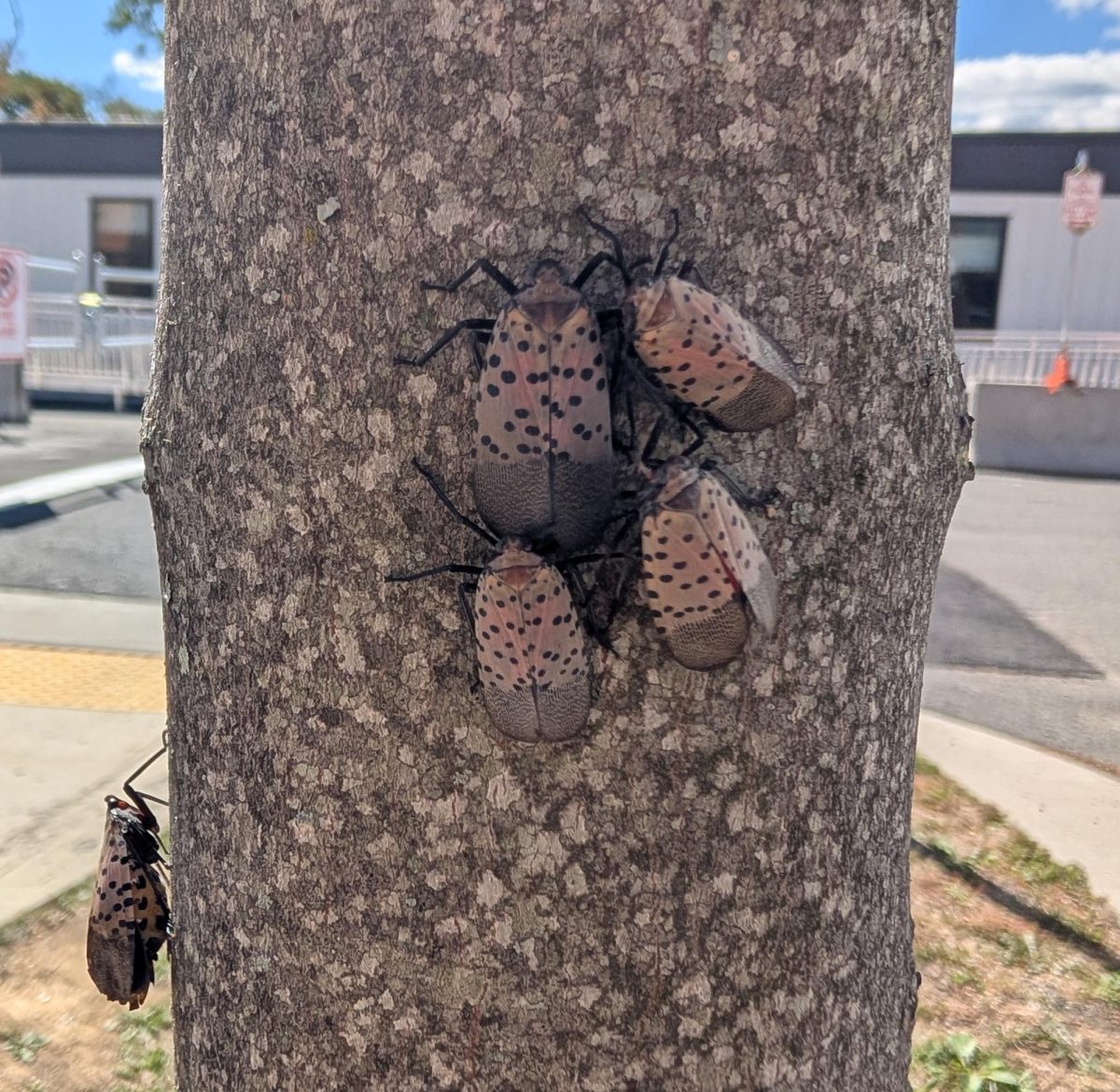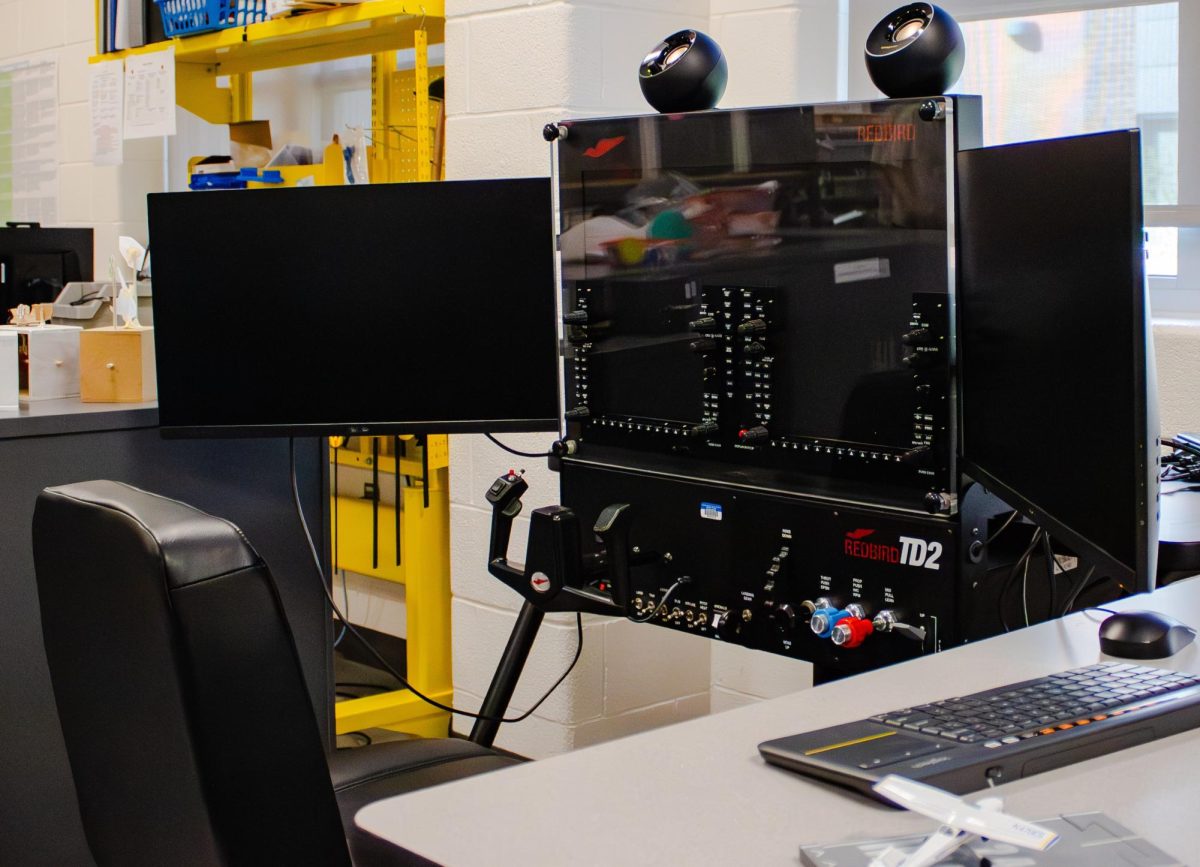‘The genie is out of the bottle’- ChatGPT arrives at Lightridge
ChatGPT is an online AI program that can generate text on practically any topic, almost instantaneously.
April 17, 2023
ChatGPT is a hot topic of conversation in academia, the arts, business and seemingly everywhere else. But what is ChatGPT?
“ChatGPT is a large language model developed by Open AI,” explained ChatGPT. “It has been trained on a diverse range of texts to generate human-like responses to a wide variety of questions and prompts. It uses deep learning algorithms to understand natural language and provide relevant and informative responses to users.”
After the AI went viral online, it quickly became a program that Lightridge students used to generate text, quickly. The website can answer essay prompts and mathematical problems, which has led to Lightridge students plagiarizing their essays and projects. However, when asked how it helps students cheat, the AI dodged the question by claiming it doesn’t condone cheating and illegal activities.
“It is not ChatGPT’s intention to help students cheat,” said the program. “It is possible that some students may try to misuse ChatGPT’s capabilities to cheat in their academic work by asking questions that are related to their exams or assignments.”
The program is now blocked off school computers. However, Jason White, English Department Chair, believes that blocking this website was an overreaction and it can lead to worse issues.
“We may end up with alarmist policies and practices based on fears this AI has caused,” said White. “I hate that.”
Cheating is not a new subject to teachers, however ChatGPT makes it hard to prove.
This program has had such an effect, that teachers have been discussing the consequences of cheating before giving out assignments. With the last assignment of the second quarter, White had decided to start using an AI generator checker program.
“After I had graded everything and grades had been recorded, I ran every paper through an AI detector website,” said White. “ Very few came up as generated by an AI, maybe 4-5%. As with most cheating, it’s a hard conversation to have. Students will be offended if they didn’t cheat and will act offended if they did. I find the best way to confront the student is simply by asking them to explain a concept or word that they were writing about that was surprising. If they can’t explain the concept or word, I will then say ‘I suspect this isn’t your work. What’s going on?’ That usually gets a confession, especially if part of the consequence is doing the work and earning a grade other than zero.”
“As a department we are dealing with its existence in real time,” said history teacher Jessica Legnini.” I can’t speak for other teachers but I’m certainly thinking about how it will affect my teaching. We have to deal with it because it’s not going away. The genie is out of the bottle!”
ChatGPT is not without benefits.
“I think there are applications for students who don’t speak English as a first language, or students who need extra scaffolding and support when writing,” said Legnini. “I’m sure teachers can figure out ways to use it there.”
Until detection methods are better, each teacher will have to come up with their own way of dealing with the new technology.
“Just like any issue that involves cheating, those students who truly want to learn will not use ChatGPT,” said history and AP Seminar teacher Vicki Socia. “They will do the writing themselves and use the feedback from the teachers to improve their writing. They will learn to write. Those who are only focused on getting an A will use things like ChatGPT to get the A and will not learn to write properly. This will cause them issues later.”






